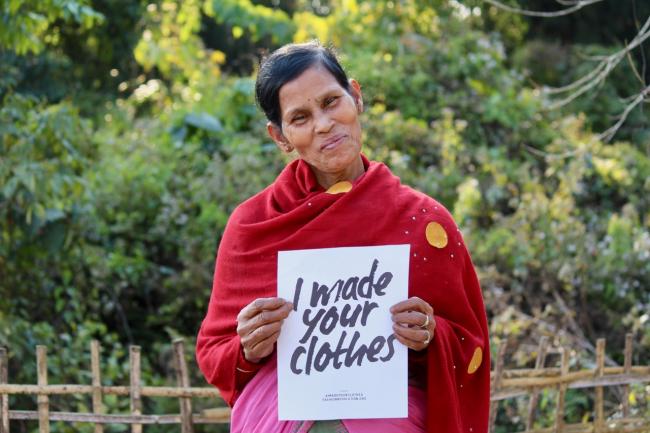Empowering Women in Conflict-Affected Communities in India
Launched in 2008, BCtA aims to accelerate progress towards the Sustainable Development Goals (SDGs) by challenging companies to develop inclusive business models that engage people with less than US$10 per day in purchasing power (in 2015 dollars) as consumers, producers, suppliers and distributors. It is supported by several international organizations and hosted by the United Nations Development Programme (UNDP).
The international garment manufacturing industry has faced increased scrutiny as concerns about the source of labour and materials rise. The International Labour Organisation estimates that there are 152 million child labourers and 24.9 million victims of forced labour, with 60 percent of forced labour being exploited by private enterprise. Inspired by statistics like these, The Fabric Social chose to focus on supporting women in conflict affected areas, creating partnerships that would allow them to earn a livable wage while creating fabrics and clothing.
“We decided to establish working partnerships in Assam and Mizoram, areas in Northeast India where people have been affected by conflict, and in many cases were actively involved as political activists, leaders and supporters. That region of India suffers from some of the worst unemployment rates in the country,” said co-founder Fiona McAlpine.
“In addition to this, it was clear from our research that many Australian brands were not fully focused on ethically sourcing their materials and labour. The Fabric Social seemed like a natural solution to these issues.”
By partnering with local organisations, The Fabric Social now provides fair and well-paid work for unemployed women in these regions, and the relationship has resulted in attracting other buyers for the women’s cooperatives in those communities.
“This is not just about creating jobs, we view this project as a partnership with the women who make our clothes. These talented artisans are in full control, and in their cooperatives, they decide the cost of their labour and their finished goods. In return, we provide training and work hours so they can continually empower themselves to become economically independent. By 2023, we aim to make a significant contribution to these women through our commitments with the BCtA, and I am excited to see our collective growth in the future,” said McAlpine.
The social enterprise is executing its company strategy in alignment with Sustainable Development Goals (SDGs) 1,4, 5 and 8, which include ending poverty, inclusive and equitable education, gender equality and sustainable economic growth. McAlpine said her organisation’s commitments as part of the BCtA and to the SDGs, are part of the very ethos of The Fabric Social.
Sahba Sobhani, acting Head of BCtA, said The Fabric Social represented an opportunity for women who were impacted by conflict across the world.
“Companies like The Fabric Social understand that people in conflict-affected areas want opportunities to become economically empowered and to reclaim the lifestyle they may have lost as a result of conflict in the country or community. I am truly happy that they have signed on as a partner for the BCtA initiative, and I anticipate that their success will expand not only in Northeast India, but to other regions where people need chances to grow, and to improve the lives of their families and communities,” he said.













